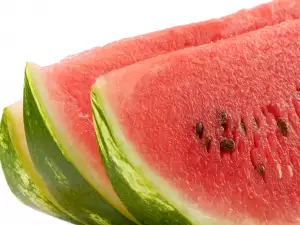The physical barrier between internal organs and the outside world, the gastrointestinal tract is of utmost importance. The gastrointestinal tract is like an internal skin, but it has about 15 times more surface area than your skin. It also contains the largest number of immune cells in your entire body, representing approximately 60% of your entire immune system.
It may seem surprising that the gastrointestinal tract has more immune cells than any other organ in your body. Your gastrointestinal tract comes into contact with the largest number of different molecules and organisms of any other organ in your entire body. Just as an example, a person averages an intake of more than 25 tons of food in their lives.
The food you eat can provide support for this barrier, or cause damage. Many of the nutrients in healthy foods help maintain a healthy barrier. Foods that are high in phosphatidylcholine or its predecessor, choline, are particularly helpful in supporting healthy gastrointestinal barrier as phosphatidylcholine is one component of the protective lining. Studies have shown that diets that are low in choline lead to lower levels of phosphatidylcholine and decreased immunity.
Vitamin A plays an important role in supporting the cells of your skin, gastrointestinal tract and lungs, which are the main barriers that separate you from the outside environment, and promotes the formation of a protective lining in the gastrointestinal tract. Essential fatty acids such as those found in fish and healthy range of monounsaturated fatty acids, such as those in olive oil may also support healthy gastrointestinal cells.
Finally, high fiber foods such as whole fresh fruits and vegetables, promote the health of the gastrointestinal system in several ways. They ferment with the friendly bacteria in the colon to form short-chain fatty acids, which are used as fuel in your gastrointestinal tract cells. Fiber also helps to remove toxins that can adversely affect the gastrointestinal tract’s cells and maintain healthy digestive function in general.

Research over the last ten years has shown that nutrition plays an important role in supporting the production and operation of cells in your immune system. Protein, antioxidants, essential fatty acids, and certain vitamins and minerals are keys to a healthy immune system.
Protein and immune system
Many studies have shown that protein malnutrition can have various adverse effects on the immune system. In fact, protein malnutrition may be an important contributing factor for HIV sero conversion (a process in which a person with primary exposure to human immunodeficiency virus becomes infected with the virus). Studies show that a deficiency of high-quality protein can lead to depletion of immune cells, leading to the body's inability to produce antibodies and other problems with the immune system. In addition, animal studies have shown that the immune system can be seriously compromised even with a 25% reduction in adequate protein intake.
Protein consists of 20 amino acids that your body needs for growth and repair, and some of these amino acids seem to be especially important for the immune system. For example, the amino acids glutamine and arginine are considered as nutritional therapy in patients with surgery because of their ability to stimulate the immune system. Interestingly, it is not only the deficiency of these amino acids that can compromise the immune system, but an imbalance in the ratio between amino acids can also affect your immune response.
Therefore, a diet that supports a healthy immune system should contain foods that provide high-quality, complete protein, such as eggs, fish, mussels and venison. Many vegetables and grains are also excellent sources of many immune amino acids together with other sources of protein are particularly useful.
The most important vitamins for healthy immune function
As discussed above, your body uses a variety of approaches in order to maintain its defense against harmful pathogens in the environment, and therefore, it can not be surprising that almost all of the vitamins necessary to maintain and promote certain aspects of the immune function are needed. Some vitamins have received more attention in literature, because they are essential for a healthy immune system.
Much has been written about the role of vitamin C in supporting the immune system. Vitamin C appears to support the reduction of the length of time and severity of symptoms associated with upper respiratory viral infections, promotes phagocytic cell functions and maintains the health of T-cell functions. Vitamin C also provides antioxidant activity to support decreasing of wound inflammation. An excellent source of vitamin C are citrus fruits. Many vegetables are also excellent sources of vitamin C, fresh parsley, raw cauliflower, mustard, green vegetables and lettuce.

Many of the B vitamins are also important for maintaining a healthy immune system. For example, vitamin B5 (pantothenic acid) promotes the production and release of antibodies by B cells. As a result of lack of vitamin B5, reduced levels of circulating antibodies can be found. Folic acid, or more precisely, its deficiency leads to a reduction in T cells and may reduce the effectiveness of soluble factors, while vitamin B6 deficiency consistently blocks T cells. Deficiency of vitamin B1 (thiamine) and B2 (riboflavin) may impair your normal antibody response, and low levels of vitamin B12 appear to inhibit phagocytic cells and possibly T-cell function.
Almost all whole grains, vegetables and fruits can serve as an excellent source of at least some of these vitamins, but some vegetables are particularly useful because they are an excellent source of many of these immune-supporting vitamins. In particular, lettuce is an excellent source of vitamins B1, B2, C and folic acid. Boiled turnips and spinach are excellent sources of folic acid, vitamin B6 and vitamin C. Cauliflower is an excellent source of vitamin C and folic acid, as well as a good source of vitamin B5 and B6. Raw mushrooms are also an excellent source of vitamin B2 and vitamin B5. Red peppers are an excellent source of vitamin B6. Vitamin B12 can be obtained from foods like fish, shellfish, venison and liver.
Fat-soluble vitamins, vitamin A, vitamin E and vitamin K are also important for your overall health. Excellent sources of vitamin A include many vegetables such as spinach, parsley and carrots. Concentrated sources of vitamin K include raw cauliflower, and most green vegetables like spinach and asparagus.
Minerals that help your immune system
Zinc is one of the minerals in food that has received the most attention for its ability to support immune function. Zinc is a potent immune stimulant and its deficiency can lead to profound suppression of T-cell function. Infants with severe deficiencies of zinc show signs of slowing growth and increased susceptibility to infection.

Excess zinc, however, also shows negative effects on immune function and may inhibit the phagocytic cells (macrophages and neutrophils). Maintaining an adequate, but not excessive level of zinc is important. Healthy levels of zinc can be absorbed by including good sources of zinc, such as boiled beets, cabbage and lamb, mushrooms and raw liver.
Many other minerals are important in supporting immune function. Clinical studies have shown that iron deficiency affects your antibodies and functioning of the cells. Copper deficiency is associated with increased infection risks and can damage the development of immune cells, such as T and phagocytic cells. Selenium and Manganese are important to help the healing of inflammation and can be decent immune stimulants.
Selenium can be obtained from fish and shellfish, as well as tofu and whole grains. Excellent sources of copper are turnips, liver, raw mushrooms and other very good sources are spinach, asparagus and Swiss chard. Iron can be provided by fresh parsley, spices such as thyme and cinnamon, tofu, beans and peas and many other vegetables, such as spinach and lettuce.


















Comments